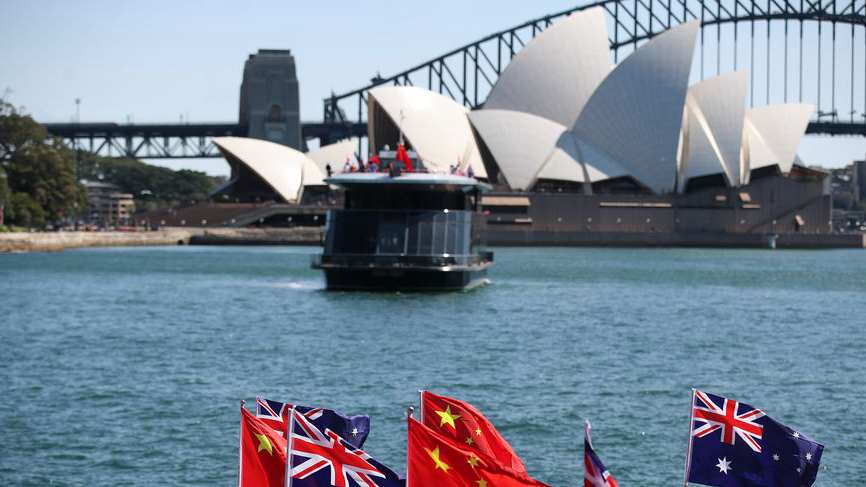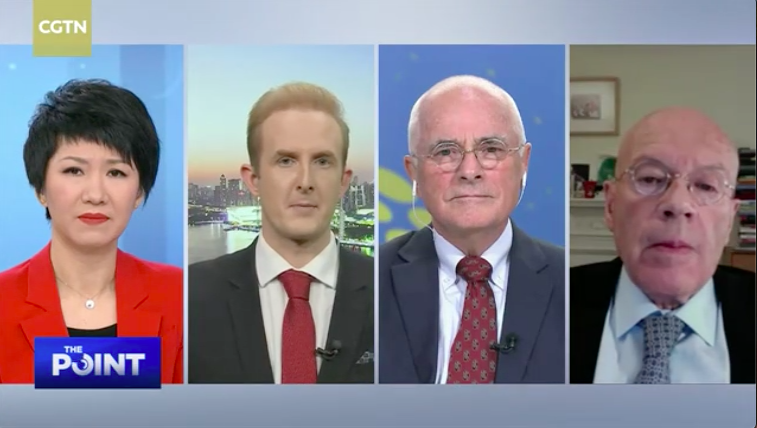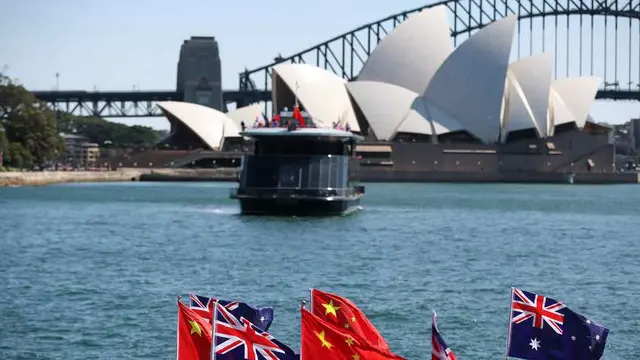01:15

Tensions between China and Australia have escalated due to an image posted by Chinese foreign ministry spokesman Zhao Lijian on November 30.
The controversial image was posted on Zhao's verified Twitter account, featuring a man who dressed as an Australian soldier holding a bloody knife against the throat of an Afghan child. And the caption reads: "Shocked by the murder of Afghan civilians prisoners by Australian soldiers."
The post came just days after Australian prosecutors launched an official investigation into the alleged war crimes of Australian special forces soldiers committed in Afghanistan between 2005 and 2016.
Swiftly, Australian Prime Minister Scott Morrison convened a snap press conference, demanding apologies from China and urging the "repugnant" post to be deleted.
What fueled the rage of Mr. Morrison and lay in the middle of this war of words, was what the image represented. Zhao Lijian didn't explain the picture was a computer-generated art piece instead of a photo, and Canberra holds that such artwork with vivid, misguiding details was "grossly insulting."
As the incident brews, reactions from the world has been very divided. France and New Zealand have joined Australia's criticism of Zhao's tweet, and the U.S. also vowed to import more Australian wines.
So far, the Chinese Embassy in France denounced the double standard by the French government. What's more, the Afghan press has also spoken to support China's move to react strongly over unlawful killings in Afghanistan.
Why is Australia so angry? How to look at such ripple effect of this incident? And what can bring bilateral tensions to an end?
01:28

Amidst the gloomy China-Australia ties shrouded by the Twitter storm, Hazza Harding, an Australian national working in China as a TV and radio presenter in Guangdong Radio and Television, said to be ashamed on Twitter. "Mr. Lijian Zhao, today, as an Australian, I feel ashamed." Harding expressed his standpoint upholding world peace and human rights protection in a heavy tone. "Today was the first time I ever even contemplated relinquishing my Australian citizenship."
As Harding's post went viral on the internet, he joined the Point on December 2. Talking about the Twitter spat, he said, "The saddest thing about this whole affair is the fact that the focus has been taken away from the accused war crimes committed by Australian soldiers in Afghanistan. And it has become more about the Twitter war, which I think is a very disappointing development."
Harding also talked about the role of Australian citizens in rebuilding Sino-Australian ties. He wants more Australians to speak out in favor of a stable relationship with China. He also pointed out that China is well justified to voice out its human rights concerns for its neighbor, and that is exactly what Australia did whenever it disagreed with or did not condole with actions around the world.
Peter Arkell, managing director of Carrington Day, said he hopes for a return of the golden days for Sino-Australia relations in 2015. "We've now gone down a slippery slide for whatever reason I can't figure, but I really wish we could get back to those good days of cooperation with so much promise and put aside these squabbles over things which we really shouldn't be arguing about."
Martin Jacques, a visiting professor at Tsinghua University wants Australia to treat China with respect for the benefit of their own economy. "Otherwise the relationship is going to continue to deteriorate. And ultimately Australia will take a huge economic hit. It's [time] to wake up," he said.
The Point with Liu Xinis a 30-minute current affairs program on CGTN. It airs weekdays at 9.30 p.m. BJT (1330GMT), with rebroadcasts at 5.30 a.m. (2130GMT) and 10.30 a.m. (0230GMT).
(If you want to contribute and have specific expertise, please contact us at [email protected].)
 简体中文
简体中文



